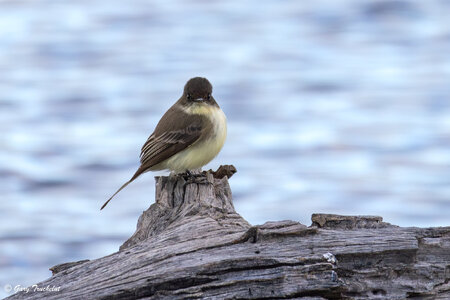I started with black and white photography and a home darkroom when I was in elementary school in 1958, carrying around a Kodak Retina folding camera with a tiny rangefinder I could put in its flash shoe, and a tiny light meter I could put into a second flash shoe I'd epoxied on top of the rangefinder.
Carried that assemblage around in my pockets in high school 'till I got my Canon FT-QL 35mm SLR with an FL stop-down metering lens mount as I graduated in 1968. Put an 85mm f/1.8 lens on it in college and while I added a few other lenses over the years (FL and FD lenses became inexpensive with the popularity of the EF mount), the 85mm saw the way I saw. That was my basic rig for 38 years until I went digital in 2006 after seeing how good it had become from shots from my wife's little point and shoot.
Got a Digital Rebel XT with an EF-S 15-85mm, then moved to the XTi with the glorious EF-S 17-55mm f/2.8. Got the T4i for its pioneering "scattered dual-pixel sites" experiment, upgraded to the "full dual-pixel" 70D and then 80D -- and then became intrigued by being able to see what my exposure looked like in the electronic viewfinder of my pocket Powershot G5X.
So I started looking for something like that in a camera that could use my EF-S lenses and got the R7 last summer.
After seeing my DSLRs get bigger and heavier with every upgrade, I was surprised and delighted to once again have a camera as small and light as my old film SLR while more capable than any camera I'd ever had.
As a 38-year 35mm SLR shooter, it's no small thing that I can make the R7 feel like home: it lets me set my f/stop on the lens with the Control Ring, my shutter speed with the main dial on the top deck, and "change the film" by setting the ISO with the ring around the joystick. Instead of a match-needle in the viewfinder I have real-time red, green, and blue histograms in a viewfinder that gets brighter and darker with changes in my exposure setting. I run in Manual exposure mode like I did with my FT-QL. I can even slide the focus point with my thumb on the rear screen while looking through the viewfinder. This setup is retro- and future-facing at the same time.
And the R7's high-resolution sensor lets me use sharp primes as if they were zooms simply by cropping my RAW files in post. (See the butterfly shots in the gallery linked below - all of which are deep crops from shots taken with my RF 85mm f/2.)
I've traded in my RF 70-200mm f/4L for a 27 year-old EF 200mm f/2.8L II USM which the R7's IBIS makes fully hand-holdable, even with the EF 1.4x III extender, giving me a faster and sharper lens for concerts without the extender, and a longer lens for birding with it.
I'm also trading in my EF-S 10-18mm for credit towards for the much smaller and lighter RF-S 10-18mm, which will be one of only two zooms remaining in my kit - the other being my EF-S 18-135 with the power zoom attachment - for shooting the occasional video. I'm torn over whether to sell or keep my RF 16mm f/2.8. (The kit RF 18-150mm was serviceable until I built my collection of RF primes, but it's now in mothballs.)
Before going mirrorless, I used my camera mainly on summer vacations. Now I'm taking pix several times a week. You can check out my stuff at
Photos.PhilOlenick.com. The first three galleries were taken with my DSLRs. The later galleries are all from my R7.

